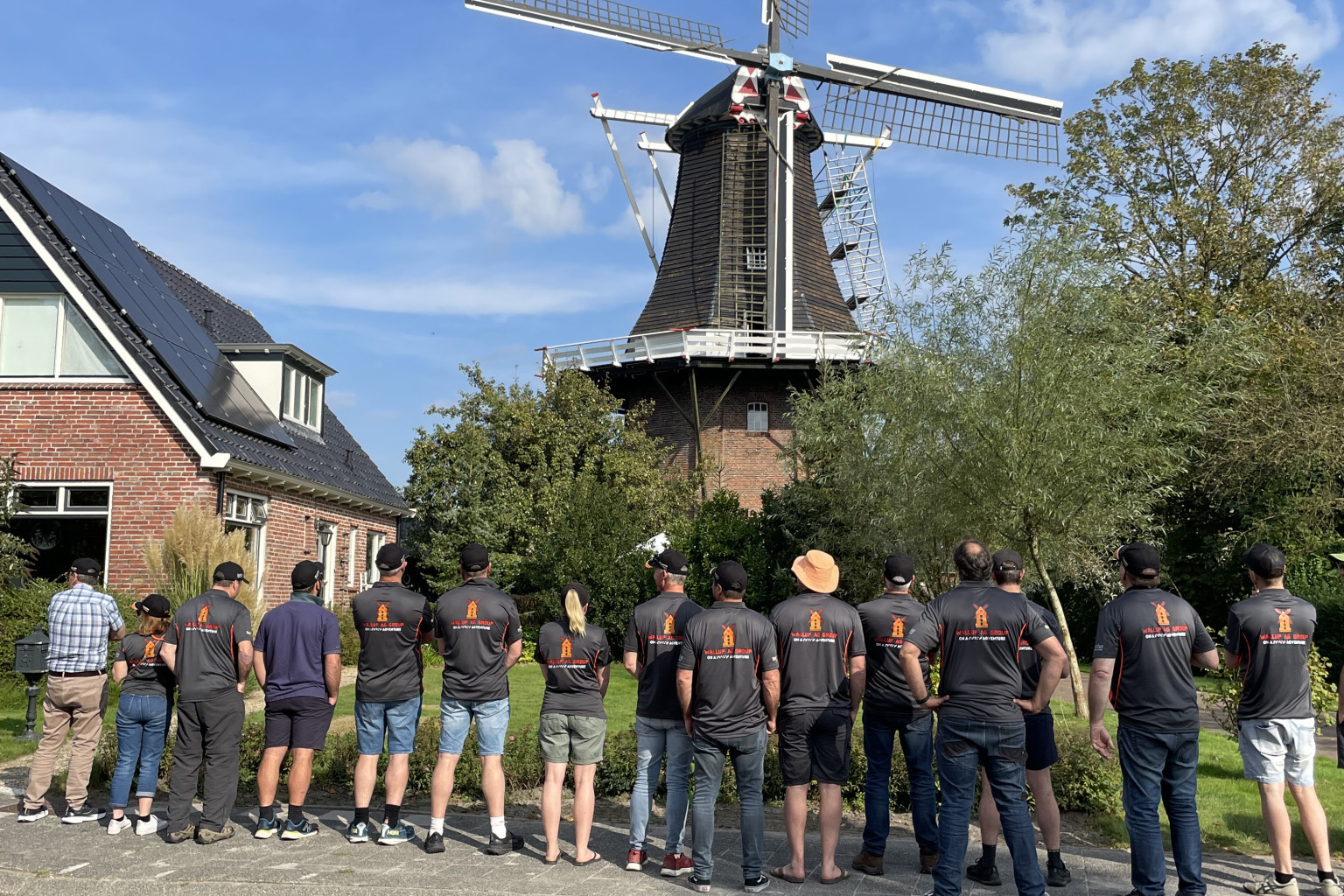Rural
7 December, 2023
Dutch ag ingenuity inspires Wallup farmers
Where better to learn about restrictive agriculture than in the European Union, where ever-tighter government policies are challenging farmers to think outside the traditional square?

A contingent of Wallup Ag Group (WAG) members has visited the Netherlands as part of a Grains Research and Development Corporation 'Farming for the future under a restricted system' study tour.
The farmers observed restrictive farming practices in action and discussed chemical and fertiliser use.
Having been around since the early 1990s, WAG had always sought from industry the latest information around broadacre farming, member Tim Inkster said.
"We've long harbored an ambition to head overseas for a tour and right now was the perfect timing to see what other countries are facing with restrictive policies from their governments and to see what their best practice looks like," Mr Inkster said.
"The Netherlands has a very proactive government looking to be at the forefront of emission reductions and it also sits within the EU, which adds another layer of policies and rules to operate under.
"As one of our members is from the Netherlands it made sense to use his contacts to find and visit the best operators in Dutch agriculture.
"Netherlands farmers operate within one of the most restrictive environments in the world where chemical and fertiliser use is highly regulated and monitored and the public image of farmers is very negative.
"The tour was undertaken to get an understanding of how Netherlands farmers are operating within such a regulated industry and to see how they are adapting in order to remain farming and profitable.
"We wanted to see what best practice looked like and to get an idea of what may be coming our way, and what we can do about it."
Mr Inkster said opportunities to expand in the Netherlands were limited by land availability so Dutch farmers were looking at alternative systems and efficiency gains to remain profitable.
"As we farm in a global system and export into the EU we may be faced with similar restrictions in order to continue to access these markets, already demonstrated with canola.
"WAG got to see first-hand how these farmers operate, to understand their restrictions, see how they are adapting to and staying ahead of government policy change, and to learn what impacts may be coming our way."
Taking in a total of 20 site visits, the group learned about:
- farming under restrictions on fertiliser use and the banning of chemicals, and how they have adapted their systems to remain profitable and among the most productive globally
- spray drift minimisation and compliance and sprayer set-up under some of the world's strictest laws
- farming without chemicals, including utilising robotics and heat technology to overcome weed issues, and the potential for this to be integrated into Australian systems in the future
- green farming opportunities and implications, how the Dutch uptake of electric tractors is working and how to manage end-of-life wind farms - something growers in the Wimmera and Mallee will face in the future.
"The Netherlands was chosen because one of our members grew up on a farm in the Netherlands and moved to the Wimmera in the late 1990s to expand their business," Mr Inkster said.
"He speaks the language, knows the country and has a lot of contacts, which made this trip a success.
"He also detailed the issues farmers face and what may be coming our way.
"The farms we visited and people we engaged with are the best at what they do in the Netherlands.
"They are tackling all of the issues thrown at them head-on with investment in expert advice, quality staff, technology, efficiency and production."
The tour took in reclaimed land, a historic pumping station that controls channel systems, farming co-operatives, machinery and sprayer dealerships, a windmill, the volunteer-run Meedhuizen Pub, an organic farm, a contractor and agricultural store, a tulip farm, the biggest farm in Holland at 1500ha, a clog factory, and the Zeeland Delta Works which protects agricultural land and homes from storm surges.
Mr Inkster said the Wallup group ultimately learned that its members need strong advocacy to protect the way they farm.
"We need to be proactive with facing world issues regarding chemical and fertiliser use and look to be as efficient, smart and compliant as possible to mitigate change in policies," he said.
"We must be proactive in promoting what we do and keep the public well informed of what we do, why and how, and, if possible, look to innovation to expand our enterprises, or add to them, to remain profitable."
Mr Inkster said the challenges faced by Dutch farmers were not industry-specific but were across-the-board.
"Farmers in Australia can learn from how they are constantly evolving to remain in agriculture and to be profitable," he said.
"As grain growers, we need to become better at sprayer set-up and spray drift management.
"This is something technology is addressing and, as it becomes more affordable, farmers are looking into investing in upgrading sprayers.
"However, we also need to upgrade our attitudes from ‘got to get the job done’ to doing the job right."